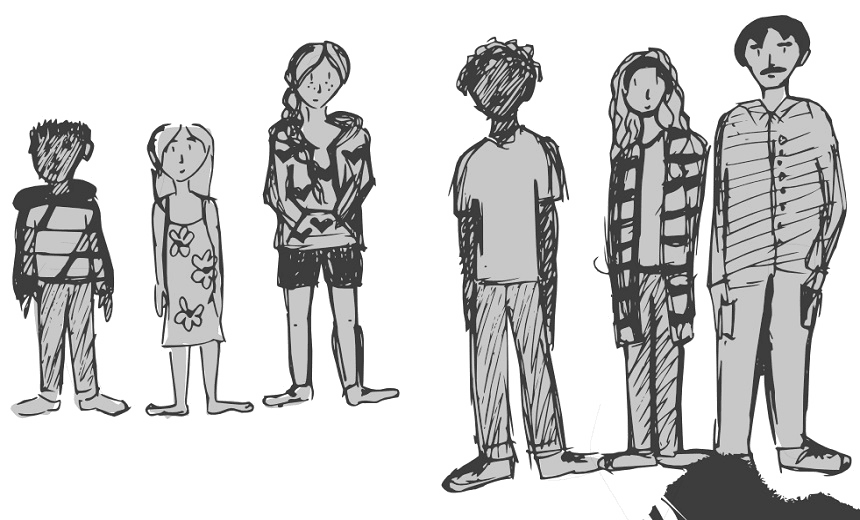Nearly half of all children born last year were born to parents not married or in a civil union – and splitting up when you have property and children can be very complex. The Law Commission’s Stephen Day explains what the Property (Relationships) Act looks like now, and what it could look like with your input.
One part of being a parent that the promotional brochures don’t mention is how to tidy your life up if you split with your partner.
We all know the ideal outcome. Be like Demi and Bruce – remain great friends who love your children but also hook up with a gorgeous celebrity half your age.
One of the first formal task ex-partners face is also one of the hardest: how do you divide all the stuff you shared as a couple? There are big things, like a house and car. And there are little things that you can’t cut in half neatly – taonga, photo albums and pets.
The law that governs how this happens is the Property (Relationships) Act. It was written 40 years ago, back in the days of 2.5 kids, picket fences and quarter acre sections.
Families have changed in that time. Like Ed O’Neill, we’ve evolved from the Bundys to the Modern Family.
Nearly half of all children born last year were born to parents not married or in a civil union. More New Zealanders are living in extended families. A minority of children live their whole childhood in a household containing only nuclear family members.
Most people know the Property (Relationships) Act basic drill – if you’re married, in a civil union, or been together for three years then the law assumes you share everything fifty-fifty.
But things can get more complicated than that.
What happens if some of the property is in a trust? What happens if one person has an emotional attachment to a special piece of property (all the Pokémon you collected two years ago)? And how do you sort it all while staying on good enough terms that you can manage the kid exchanges at McDonald’s each week without trying to wrestle your ex’s car keys off them?
The Law Commission is reviewing this old piece of law to see if it can work better for modern Kiwi families. We’re starting by asking basic questions, like what relationships the law should apply to.
What attributes should a de facto relationship have before the equal sharing rule kicks in? The law focuses on living together as a couple for three years, but it isn’t always easy to work out when this starts. Is three years the right length of time?
The Commission is asking what should count as relationship property. Should it be property that you accumulated while you were a couple, or should it include property from before the relationship?
For instance, many people in second relationships with children from a previous relationship don’t want the law to assume everything should be shared half-and-half. You don’t have a joint bank account, you split the grocery bill and the rent. But one of you owns a big house that the whole whānau lives in.
That house I just mentioned – what should happen if one person owns it but both of you made mortgage payments towards it for six years? Meanwhile the other person sold a house just before the start of the relationship and put the money in a separate investment account?
One of the big issues the Commission faces is how a piece of law about adults sharing property should consider the needs of children who are also part of that dissolving relationship.
There are two competing ideas here and most people agree with both.
Idea One: We all agree that we should think of the children first. (Cue Whitney Houston “I believe the children are our future…”) Indeed, the law agrees. It says courts should consider the interests of children when dividing property.
When parents split up, the way you divide your property affects your children. It affects where they live, what their living conditions are like, and whether they can keep going to the same school and stay in touch with family, whānau, friends and community. But…
Idea Two: We also agree that courts should not be taking property off you that is rightfully yours. The Property (Relationships) Act is essentially about sorting out a couple’s property, not looking after families. We have other laws that do that.
In practice, the law seldom takes children’s interests into account in relationship property matters.
Sometimes it can make orders that can benefit children. For example, the court can put some of the parents’ property to one side for the children. But the court rarely makes these orders. That is partly because parents rarely ask the court to make them.
There are not going to be any simple answers to these questions because these days Kiwi families come in many shapes and sizes.
Over the summer the Law Commission is asking New Zealanders to give us ideas on the fairest way for people to share property if their relationship ends. We want to hear from parents about how you would like things to work out if you had to split up with your partner or spouse. What would be a good outcome and what would be a bad outcome?
We hope people will to go to our website to answer our questions and tell us their stories.
Stephen Day is Communications Adviser at the Law Commission. He helps lawyers with their jargon and they help him with his conveyancing. He’s also a parent of three kids and is in a long-term de facto relationship that is definitely covered by the Property (Relationships) Act.
